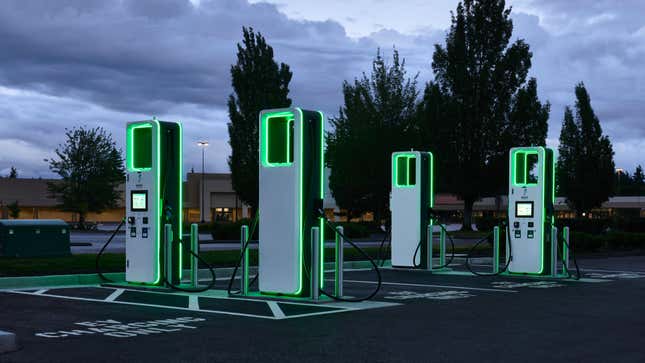
The recent surge in cable theft from electric vehicle charging stations could be tied to the increasing price of copper, an increase largely due to the increase in EV production. This negative feedback loop has caught the attention of charging companies and police, the AP reports. Authorities are recommending increased surveillance to stop cable cutters because this isn’t going away on its own any time soon.
Cooper is an essential material when building any electric vehicle, with at least 100 pounds in every car rolling off the line. The demand for copper is drastically outpacing the capacity to mine the metal. Demand is slated to increase by 52 percent by 2040 and supply is only projected to increase by 16 percent, according to Automotive World. The AP mentions how the metal-hungry production reflects in copper’s market price:
“The charging companies say it’s become clear that the thieves are after the copper that the cables contain. In late May, copper hit a record high of nearly $5.20 a pound, a result, in part, of rising demand resulting from efforts to cut carbon emissions with EVs that use more copper wiring. The price is up about 25% from a year ago, and many analysts envision further increases.”
These thieves aren’t savvy capitalists. The cables are roughly valued at $20 each, so they’re just looking for a quick score. With just a pair of bolt cutters and a getaway vehicle with storage space, someone could go on a snipping spree at a charging station in a matter of minutes and make out with a couple hundred bucks in copper. Electrify America told the AP that cables have been cut 129 times this year across its network of stations. The running total has already surpassed 2023’s year-end mark.
While thieves are indirectly benefitting from the EV transitions, they are also hampering it. Taking an entire station out of commission is extremely discouraging for anyone who wants to buy an EV. As the federal government pushes to build out the country’s charging network, it’s literally being cut down. One step forward, two steps back.

